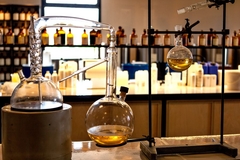Unilever and Azelis ramp up activities in Philippines’ personal care and home cleaning sectors
20 Dec 2022 --- Industry titans Unilever and Azelis are scaling their Southeast Asian operations across the skincare, hair solutions and home cleaning product segments. The companies have individually published updates on their latest investments in the Philippines, which serves as an attractive entry point to the broader Asia-Pacific region.
FMCG giant Unilever will begin the commercial operation this December of its PHP 4.8 billion (US$86.9 million) expansion in the Philippines, which is anticipated to become one of Unilever’s biggest personal care factories globally.
The investment will translate to an additional 88,000 metric tons – or 15% production capacity increase – in personal care or hygiene products, such as haircare, skincare and deodorant products.
Unilever’s Philippines investment will translate to an additional 88,000 metric tons in personal care or hygiene products, such as haircare, skincare and deodorant products (Credit: Unilever).In terms of the growth prospects of the Philippines, Unilever executives state they are “confident” and believe in the stability of the policy environment and the nation’s push toward greater use of renewable energy.
The Philippine’s Board of Investments (BOI) managing head Ceferino Rodolfo, who is also serving as undersecretary at the Department of Trade and Industry, remarks the project has been approved at the BOI level. The expansion project was among the major highlights during President Ferdinand Marcos Jr.’s visit to Brussels for the EU-ASEAN Commemorative Summit last week.
Operational in 2023
Rodolfo shares that the state-of-the-art facility will start commercial operation this December 2022 with the formal inauguration of the plant expected in the first quarter of 2023.
“We expressed to President Marcos our long-term commitment to sustainable and responsible growth in the country and we are optimistic that our new PHP 4.7 billion [US$86.9 million] investment in a future-fit personal care factory in Cavite will contribute to the Philippine manufacturing sector’s competitiveness,” remarks Benjie Yap, chairman at Unilever Philippines.
“We employ highly advanced technologies, with the potential to qualify the facility for the World Economic Forum’s ‘Advanced Fourth Industrial Revolution Lighthouse’.”
In terms of eco-friendly credentials, Rodolfo adds that Unilever Philippines already operates its local plants using 100% renewable energy as sustainability is at the core of the company’s plan in the country of making it a hub for sustainable technology.
“Unilever’s investment is in line with the Philippines’ vision to be a hub for sustainable manufacturing products powered by renewable energy,” he says.
Rodolfo notes that Unilever has been expanding its operations in the country. Two years ago, Unilever invested PHP 1 billion (US$18.1 billion) for their ice cream facility. He also highlights that the company’s previous investments were by their suppliers but the latest PHP 4.8 billion (US$86.9 billion) expansion was by Unilever.
Philippines ranks among priority markets
Notably, 95% of Unilever’s products sold in the Philippines are produced in their domestic plants. The nation is also one of its top ten markets globally. Originally, the company’s personal care products are being produced in its Manila plant specifically in Paco, Manila.
With city developments in Manila shifting toward commercial and residential use, the Manila plant will be closed and Unilever will transfer its operations to a more technologically advanced plant in Cavite, with additional 15% production capacity.
Aside from manufacturing, Unilever also operates a shared service center in the country, which is its second largest in the Asia region. As a support facility, this site handles finance and accounting, IT procurement and data analytics.
 Notably, 95% of Unilever’s products sold in the Philippines are produced in their domestic plants. The nation is also one of its top ten markets globally (Credit: Unilever).The company also flags the need for comprehensive solutions to address plastic pollution in the country. As one of the leading consumer goods companies – with global revenues of around US$60 billion annually – it has already introduced initiatives to spur community action toward reducing plastic pollution by advocating zero-waste management that is focused mainly on plastic packaging waste utilization.
Notably, 95% of Unilever’s products sold in the Philippines are produced in their domestic plants. The nation is also one of its top ten markets globally (Credit: Unilever).The company also flags the need for comprehensive solutions to address plastic pollution in the country. As one of the leading consumer goods companies – with global revenues of around US$60 billion annually – it has already introduced initiatives to spur community action toward reducing plastic pollution by advocating zero-waste management that is focused mainly on plastic packaging waste utilization.
Unilever has spearheaded a community-based sachet recovery program, along with office and factory solid waste management programs, packaging innovations, as well as collaboration with industry coalitions. Unilever has also pledged to have all of its packaging reusable, recyclable and compostable by 2025.
Azelis expands Novozymes partnership in Philippines
In other industry developments, specialty chemicals supplier Azelis has expanded its partnership with biological solutions specialist Novozymes to the Philippines. Azelis first entered the Philippines in 2021 through the majority shareholding acquisition of Phil-Asiatic Supply & Services, Inc. (PSSI), which strengthened its overall presence in Asia Pacific.
This latest distribution agreement signals the group’s increasing business activities in the Home Care and Industrial Cleaning market.
Effective immediately, PSSI, an Azelis company, will distribute Novozymes’ enzymes for cleaning solutions. Novozymes specializes in biological solutions designed to improve industrial performance of cleaning products.
Novozymes’ enzymes target the reduction of chemicals in detergent formulations, which the company says decreases carbon emissions and minimizes chemical stress on bodies of water.
“By combining Azelis’ global market presence, PSSI’s experienced team of technical and sales experts, and Novozymes’ innovative portfolio of products, customers have access to a wider range of greener, more efficient cleaning solutions for clothes, dishes and surfaces,” states Azelis.
According to Novozymes, partnering with Azelis and PSSI will allow the company to provide customers with formulations that are more innovative, sustainable and aligned with leading market trends.
Besides having a shared focus on sustainability, the strategic partnership will also allow Novozymes to accelerate their growth by capitalizing on Azelis and PSSI’s ability to create tailored solutions, provide dedicated laboratory facilities and drive strong commercial opportunities.
“This mandate is excellent acknowledgment of Novozymes’ trust in collaborating with us to expand their business footprint, thanks to our extensive knowledge of the Home Care and Industrial Cleaning market,” says Jaciel Orandain, general manager PSSI, comments.
“We are delighted to distribute their enzyme products in the Philippines, which nicely complements our existing portfolio and provides us with a broader range of cleaning solutions and new opportunities in the market.”
By Benjamin Ferrer













